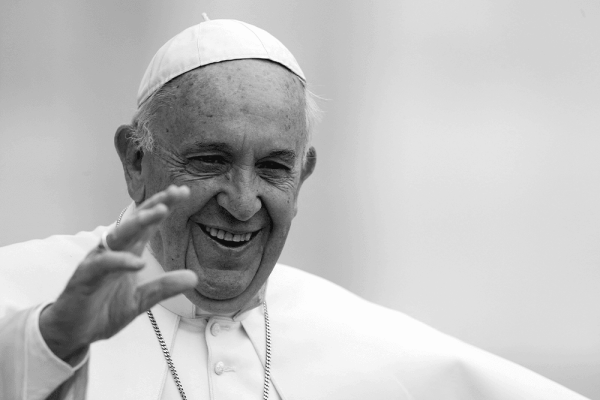Spanish friar Bartolomé de las Casas recounts the final words of Hatuey, an indigenous leader on the island of Hispaniola who resisted the conquest:
When tied to the stake, the cacique (chief) Hatuey was told by a Franciscan friar who was present . . . something about the God of the Christians and of the articles of Faith. And he was told what he could do in the brief time that remained to him, in order to be saved and go to heaven. The cacique, who had never heard any of this before and was told he would go to Inferno where, if he did not adopt the Christian faith, he would suffer eternal torment, asked the Franciscan friar if Christians all went to heaven. When told that they did he said he would prefer to go to hell.
Hatuey preferred hell over association with the actions of Christian conquerors. This story powerfully reminds us of the way in which Christianity entered the Americas.
Modern, Euro-American Christianity is deeply implicated in the colonial legacies which have crushed indigenous peoples. Reckoning with this is not easy. The doctrine of discovery provides an example. The doctrine of discovery was a Christian invention which justified dispossessing indigenous peoples of their land, parceling it out among emerging nation-states, and turning it into private property for settlers. In this framework, indigenous peoples are left with either extermination or assimilation.
Besides merely saying “sorry,” what would it mean to concretely repent for the doctrine of discovery? What would it look like to act against it? The truth is that undoing the doctrine of discovery would destabilize our entire western legal tradition. Our society is organized around private property and various claims to national territory which have discovery as a foundation. Take away discovery and society as it is currently built falls apart. So what are Christians to do?
I believe that concrete repentance for the doctrine of discovery entails a number of things. First, Christians must radically re-think how we — and the settler states we inhabit — relate to the land and indigenous claims to sovereignty. Activist Leanne Simpson writes about the importance of cultural and intellectual resurgence in indigenous communities as they transform their relationship to the state. Going beyond superficial reconciliation and multiculturalism, challenging discovery includes challenging the structures of society. This entails addressing claims to territory, the reservation system, constitutional law, and violence that has been carried out against indigenous people with impunity.
Second, Christians must abandon the Eurocentrism of modern Christian missions. George Tinker challenges the ways in which Las Casas is celebrated as a hero. Although he did defend indigenous peoples against other Christians of his time who argued for absolute extermination or servitude, Las Casas still justified the conquest as an opportunity to evangelize and civilize. Additionally, he justified trans-Atlantic slavery and the denigration of black bodies even as he defended indigenous people. For the most part, many well-meaning Christians have followed Las Casas in seeking to evangelize and civilize indigenous peoples while making them conform to their idea of theological “orthodoxy.” Re-thinking missions means respecting the variety of shapes that indigenous spirituality can take without forcing conversion or a particular Euro-American expression of Christian faith.
Third, repenting of the doctrine of discovery should include wrestling with destructive seeds embedded within modern Christianity which contributed to colonialism. For example, the seeds for racial classification and the denigration of indigenous and black people can already be seen within Christianity itself, specifically in its original construction of its other, namely the "Jew." Within theology, this is known as the problem of supersessionism. Additionally, exclusively privileging Judeo-Christian scriptures - as written texts - can contribute to denigrating oral histories and other religious ways of knowing.
The case of the Dakota Access Pipeline reminds us that encroachment of native territory and devaluing of our shared land and water is an ongoing problem. The Standing Rock Sioux tribe and members of nearly 100 tribes from the United States and Canada have joined in resistance to a project that prioritizes the extraction of oil over the people inhabiting these territories and the health of our planet. Where will Christians stand in such a theologically fraught debate that involves nothing less than the defense of water itself and solidarity with native peoples? The Dakota Access Pipeline is one recent example among many today that show that the logics of "discovery" have not ended but continued.
I don’t presume that the forms of concrete repentance that I write about here are easy solutions. If anything, this represents a life-long project that can be filled out in a number of detailed ways. Nevertheless, the task for Christians is to move beyond shallow multicultural celebration and symbolic acknowledgement to a posture of truly listening to our indigenous siblings, both those who are Christian and those who are not. Acting against the doctrine of discovery means nothing less than fundamentally changing the ways in which we have lived and imagined faith during the past 500 years.
This article originally appeared in Do justice.
Got something to say about what you're reading? We value your feedback!







